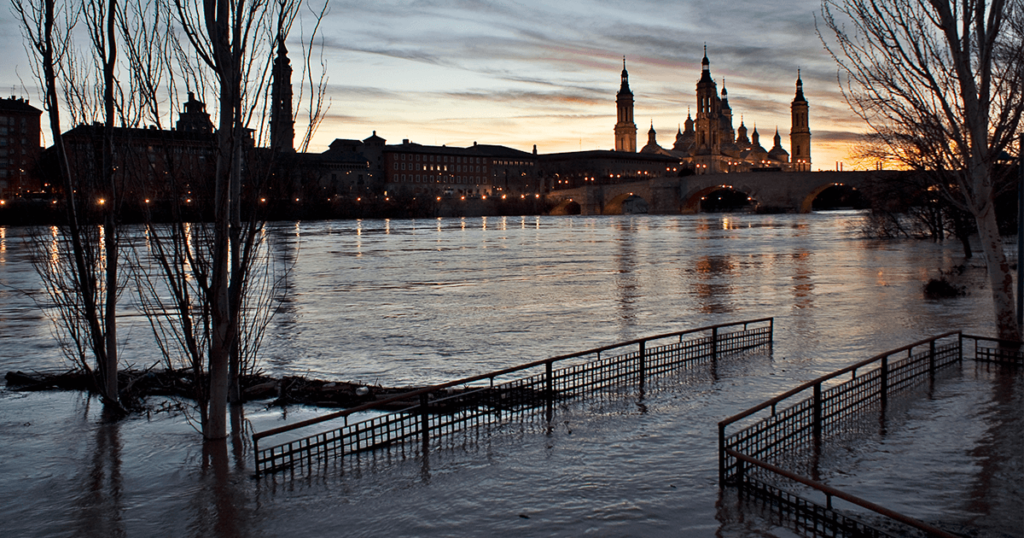
A tromba is a sudden downpour, and when it’s so much water that it fills streets and overflows creeks and sweeps away cars, people, pets, and sometimes a house or two, it’s called a riada. Such an onrush occurs most often on the Mediterranean coast, where special streets that aren’t streets at all but very broad and deep gullies channel the flow through villages and out towards the sea. In a world where things could feel joy, such a gully would rejoice in the rains, which make it king for a day.
The typical rain in Asturias is not the Mediterranean deluge but a fine, light mist. Lighter even than a drizzle, it’s called orbayu in the Asturian language. Nevertheless, several years ago it rained so much that two rivers in different months overran their banks to fill low-lying villages along their way. Weeks later, I saw plastic bags still fluttering from high branches near the banks of one, the Nalón.
This June, the Nalón again flooded, the news eclipsed by floods in Gijón, where I live. One night more water fell here than anywhere else in the country. The beach was a mess from what the Piles River brought on surging waters, and on the outskirts of the city I saw fields full of rocks and pebbles and red mud washed down the trails from the Monte Deva wilderness area. It was a week of exceptional wet all over Spain, in a particularly wet June that followed an extraordinarily wet spring, full of stories of floods. Before that was a winter of deep mountain snows and strong coastal winds with giant waves. Bigger than ever, I’ll warrant.
All this is exciting news for the alert weather watcher. Wetter, deeper, and more—who ever tires of talking about it? Astonishing changes! Worrisome!
For a baby, too, change is news, though not new, as every day brings a record of some sort that will be broken the next day, setting a new one. The baby I’m thinking of, Julia, is three months old. She’s constantly experiencing the biggest, best, saddest, worst, tallest, and loudest as records are made and fall, day after day, in the thrilling, deepening life of a baby. The longest I slept one day, the most I cried the next, the most I ate, the biggest burp. More sun than ever! Warmer bath! New people! Adults think the world population is growing alarmingly, but look at the population for a baby, taken out into the day. Not the usual two people, not even four, but unheard of numbers peering into her baby carriage. She doesn’t flinch but blinks several times, her eyes wide.
Though often startled, she seems to welcome change, not asking whether it is good or bad or even what it means, but just taking it in, wide-eyed and flinging her arms about, perhaps with the wonder of it all, or perhaps shaken by the news as one might be by a jolt of electricity. Lightning, like snow, stars, and the ocean, is still to come, but flashes of understanding are hers already. Brighter every day, I’ll warrant.

